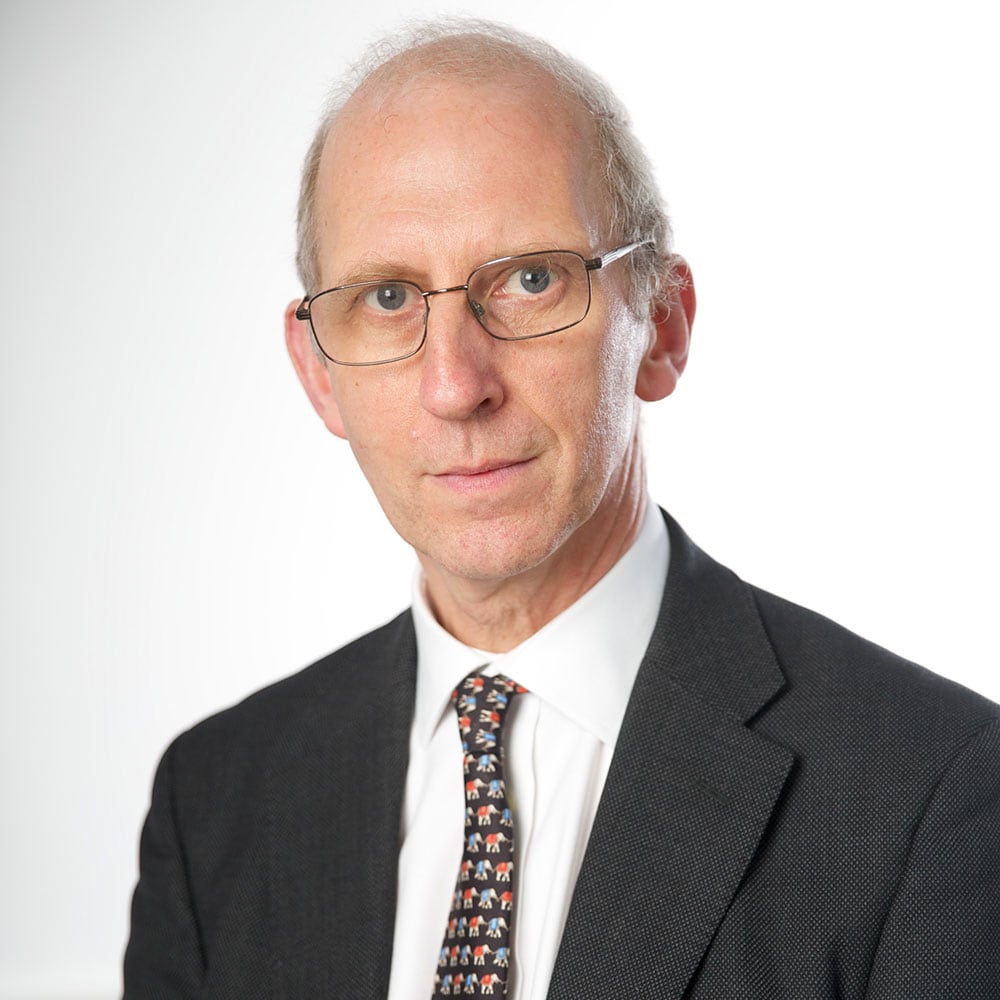- Foreword
- Introduction
- No dea(r)th of philosophy
- Public philosophy for gremlins
- Identity dialogues
- Philosophy matters
- Philosophy as democratic underlabour
- The marketplace of ideas: who's buying?
- The point is to change it
- On the inequity of ethics
- Did that answer your question?
- Philosophy in the flow of political life: realism, moralism and community wealth building
- To the shoemakers and the ship-builders: on publicly-engaged philosophy and AI ethics
- Breaking bread with the enemy
- Of weasels and women, or, what is public philosophy anyway?
- Philosophy protects the climate
- The pathology of the prison
- Call the midwife
- Ours to question why
- On the new demise of ethics
- The world and his wife
Foreword
These essays on the role of philosophers in public life are an unusual initiative for the Nuffield Foundation and this foreword is by way of an explanation. In recent years, Nuffield has been primarily a funder of data-driven social science; however, the Foundation’s original purpose was to “advance social wellbeing” in the broadest sense and it embraced thinking across the sciences and humanities. Two of Nuffield’s Centres, the long established Nuffield Council on Bioethics and, more recently, the Ada Lovelace Institute on AI and Society, were built on the premise that good policy outcomes derive from the interplay between the clarification of principles and empirical analysis; both bodies owe their creation in large measure to Onora O’Neill, a previous Chair of the Nuffield Foundation, and one of the philosophers most influential in framing questions of public policy in recent decades.
Nuffield has held a long-standing belief in “the power of evidence to change lives”, but there are times when the concentration on data analysis to provide that essential empirical evidence can appear somewhat detached from any underpinning consideration of the questions the data are meant to illuminate. For all the rigour of its methodologies, there can be a narrowness in the way that social science construes the questions it addresses, and a lack of interest in different intellectual traditions dealing with similar questions. This project emerged from a growing sense that the disciplines of social science, robust and valuable in their own terms, require some wider normative framing, especially at this uncertain moment in our history and culture. This objective goes beyond academic aspirations for “interdisciplinarity”; it has a direct bearing on the challenge of translating clear and reasoned thinking about what constitutes social wellbeing into effective policy and finding better practical answers to common concerns.
The project is also a response to a growing sense of crisis. The norms of government and policy making, and the assumptions on which these were constructed mid 20th century, now confront a corrosion in public discourse, an accelerating decline in public trust in institutions and an AI revolution which has overturned the way we process information about the world and understand our place within it. The financial crash of 2008 and the economic stagnation and widening inequalities that have followed have been accompanied by a breakdown in the relationship between the policy maker’s use of data as evidence and the experiences of those whose lives make up that data. The well-tried tools of social policy — quantitative data analysis, complex trade-offs, evaluation and prioritisation — have been associated with ways of thinking that have at times appeared indifferent to those whose wellbeing they are meant to serve.
One response to this erosion of trust in the authority and fairness of decision-making has been to look to practical ethics as a framework to provide some reassurance of public institutions’ accountability and good practice. Ethical frameworks for policy making are (rightly) prominent in the climate debate, in data and AI governance and in addressing questions of intergenerational equity. However, although reference to ethics in public debate is now commonplace, and to be welcomed, the more difficult thinking, testing the prior questions and principles that should underlie the ethics of policy formulation, has not been so prominent. Public ethics are at risk of being elided into sets of rules to apply to difficult questions in various arenas — the ethics of corporate governance, ethics in public life, ethical investing, data ethics. How we should determine ethical import is much less discussed than whether or not a particular way of acting is permissible. In more debased ways, ethics has become a useful adjunct to corporate branding. “Values” (usually no more than a list of generic adjectives) are displayed on private and public sector websites as self-validated testimony to their own virtue.
The challenge of reaching difficult ethical conclusions is with increasing frequency made synonymous with new models of public consultation – citizen juries, “deep listening” and the like — as if these processes in themselves can resolve questions of moral ambiguity and fundamental value conflicts as they touch on public policy decisions. Though such deliberative models have value, especially at a time when institutional decisions-making has lost authority, without the critical distance and muscular thinking of the philosopher to interrogate them, their claims to be sufficient as ethical arbiters of policy making must be at best limited.
Simultaneously, the rapid acceleration of advances in the life sciences, data science and AI has intensified concern about the ethics of their application. (The urgency of the need for an ethical framing of these technologies is intensified by the fact that they are frequently in the hands of mega-rich individuals who are disdainful of public institutional norms). The AI challenge is often set out in existential terms – the need to govern scientific advances that challenge the future of human agency. But there are also more immediate ethical concerns — asymmetries of information and power, the end of privacy, the protection of, and limits to free expression; how to mitigate the risk inherent in AI models of exclusion, discrimination, unfair categorisation, pre-judgements based on analysis of proclivity, etc. The danger here however is that ethics could be construed solely as being a brake on scientific discovery, rather than being the means of governing its beneficial deployment.
There is, without question, much that is admirable in an ethical purposiveness that seeks to calibrate public policy and decision making but, in practice, this approach can too often be reduced to regulatory questions of compliance. We run the risk of using ethics as a tool to close down issues of complexity rather than to open them up.
Hence the need for this project. We asked Professor Dave Archard, Chair of the Nuffield Council on Bioethics from 2017 to 2022, to lead it. During the Covid pandemic, he personified the direct engagement of bioethics, thinking across intellectual disciplines, and then translating that deliberation to guide those making policy under stress. In choosing his title for the project, “The Point is to Change it – Essays on Philosophy in Public Life”, Professor Archard has deliberately echoed Marx to reflect the necessary edge, urgency and responsibility of Philosophy in the current context. This project is not simply a challenge to social scientists to think more broadly about how philosophers address similar agendas; it is also an invitation to philosophers to translate their work and language into terms that will help frame and clarify the thinking of policy makers and navigate paths to good government.
As an academic funder, the Nuffield Foundation does not take a position on any of the arguments set out in these essays. Our interest is in giving space to consider the ways in which philosophers’ modes of thought contribute constructively, (or not), to public policy discourse (and indeed whether they can or should). This volume is therefore focused on how philosophers might help us to think about big public themes not what any conclusion on any one theme should be.
Our other aim has been to reconnect the way philosophers think about ethical questions with the wicked questions and trade-offs of social and economic policy. This is more than just an intellectual exercise: better thinking is essential to the defence of humane government at a time of vertiginous uncertainty when both normative reasoning and empirical analysis are at risk in our public culture.

